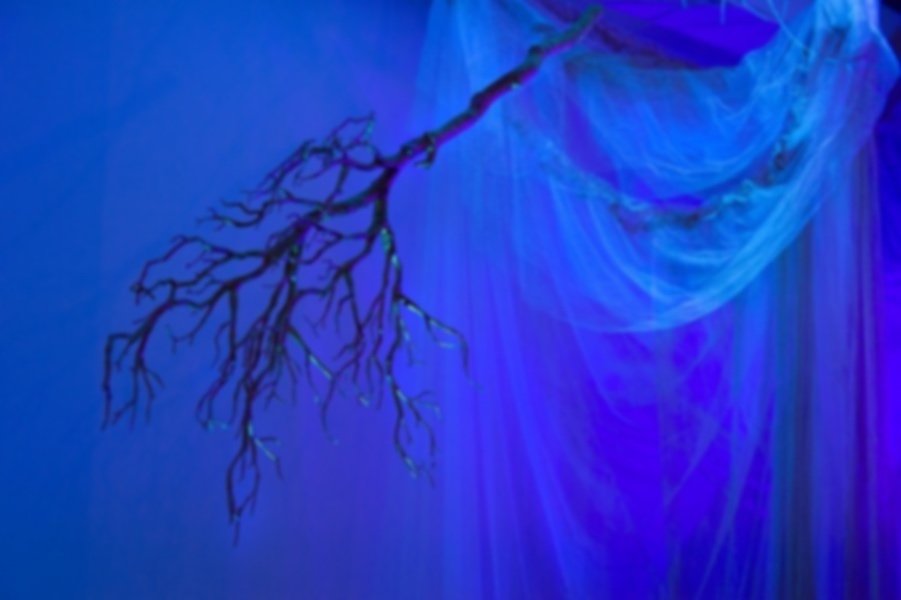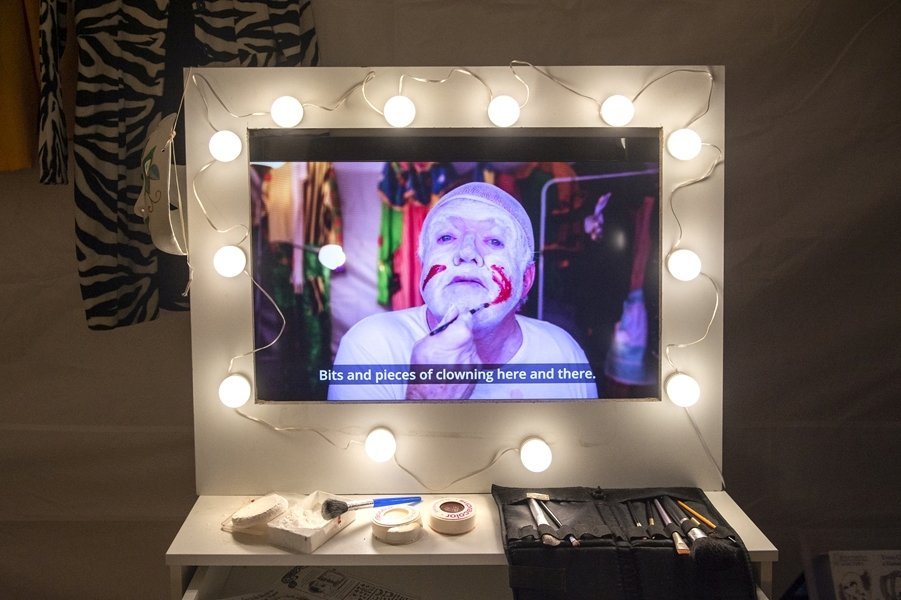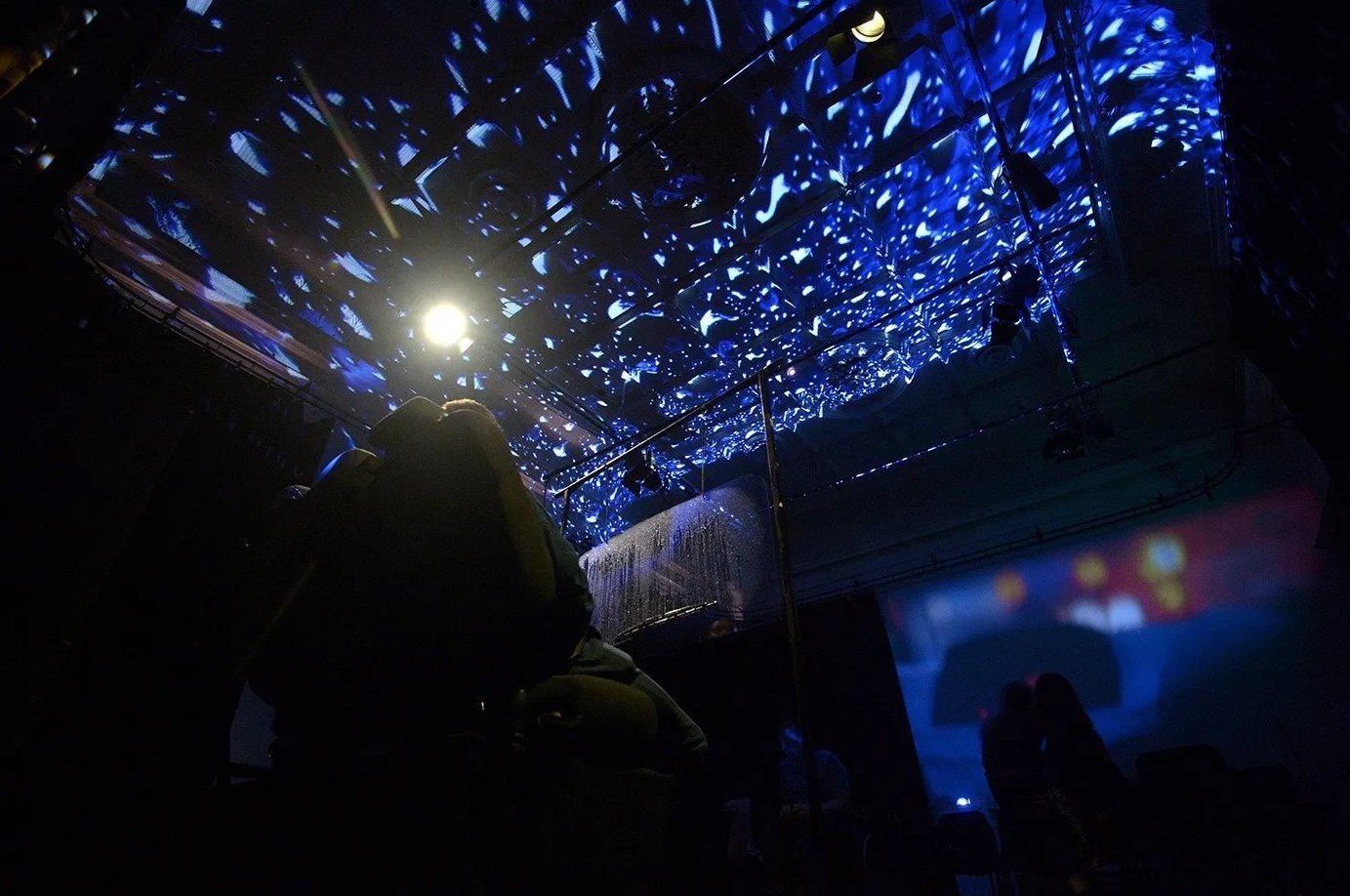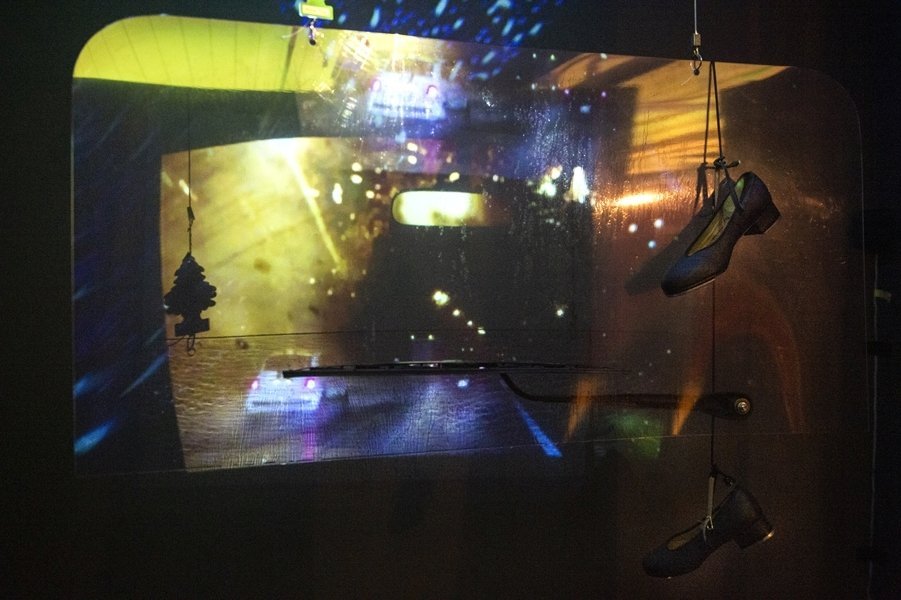
Memory-Go-Round
Sound design for immersive sensory installation at Abbotsford Convent.
Five artists with disability/neurodiversity shared their intimate memories through these installations, premiered at Abbotsford Convent for the International Day of People with Disabilities 2022.



Photography by Paul Dunn.
1-3 December 2022
Abbotsford Convent, The Store
Co-creators & performers: Barry Robinson, David Baker, Gerard Langridge, Madeleine Prasad, Tammy Smith
Creative team:
Artistic Director & Sensory Theatre / Zya Kane
Inclusion & Associate Artistic Director / David Baker
Artistic Collaborator & Film / David Hansen
Sound / Lisa Greenaway
Visual Installation / Pimpisa Tinpalit
Technical Actualiser / Brad Vaughan
Creative Producer / Taka Takiguchi
The Memory-Go-Round captures the emotive imagination through the universal language of the senses, focusing on atmosphere and the expression of stories through light and shadow, sound, texture, taste and smell. It’s a beautiful innovation from Zya Kane.
I joined the team in 2022 to design sound for the exhibition at Abbotsford Convent. Together we created five immersive, five minute experiences, with audiences invited to walk through and experience each, then respond through writing their own memories, and feedback in a sixth room. We also created a welcome room with a guided meditation/welcome by Zya.
“The beginning of the journey was a lovely sensory experience... and the sense provocations at all five stations were really effective... they didn’t so much provoke specific memories but they did provoke sensory memories... the feeling of ‘I know how that feels, or tastes or sounds etc from my own experiences.”
— Audience review
For two of the installations we chose to go with domestic 5.1 surround sound receivers and speakers, coding the surround sound into video formats to play through laptop computers (this caused the most headaches, getting the video coding right so that the right tracks were in the right speakers, and the right video player got the right signals, akin to herding cats). For David Baker’s memory (in the one small, square, separated gallery space) I was able to create a ‘classic’ surround mix to immerse the audience in a car driving at night, in the rain. For Barry Robinson’s work, in the large long space, I built a freer, minimal soundscape of a suburban garden with moving sounds (lawnmowers, dogs, traffic, birds). For Madeleine Prasad, we used small battery operated sound buttons that the audience could press to hear her talk about her memories. For Tammy Smith’s experience, that involved her voice alone ‘backstage’ then a video of her performing on stage as the audience moved around, we used a stereo mix and two powered speakers, sending one channel backstage, one to the front.
With limited budget and unlimited imagination, we faced the challenge of creating separate experiences including sound, in a gallery without distinct separate rooms or sound baffling. I also needed to create a five minute loop of music (that we called the ‘carousel’) that would play in all spaces at the end of each work, signalling the audience to move on. We were unable to use a central synced system, so all installations had to be triggered manually to begin, and then all loop for a few hours. This meant that each naturally moved out of sync over time. The music I composed for the carousel was deliberately a little abstracted, so that when the works lost sync it would add to the effect of an abstract carousel.
Watch
Impermanence Productions video preview: five artists with disability/neurodiversity share their intimate memories through installations at Memory-Go-Round (MGR). This installation celebrates diversity and the arts for the International Day of People with Disabilities.
Listen
The ‘carousel’ music for the Memory-Go-Round.
